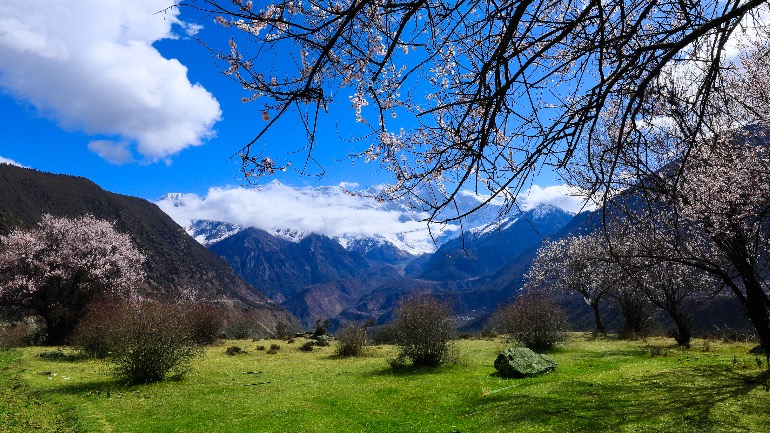What is the difference between dedication and aspiration? On the premise that a virtuous action resulting in positive karma, like liberating animals, has been done, the aspiring vow made right after this action is dedication. When a vow or a wish is made without this premise, it is an ordinary aspiration. For example, when seeing a Buddha statue or a reliquary stupa, one prays, “May I in all future lives….” This is not dedication but aspiration. The difference lies in whether any virtuous action has been performed and any positive karma thus accumulated has been made the subject of dedication.
KHENPO'S BLOG
Buddhism has never meant to conquer anything or anyone. The Buddha also said that he cared not in the least the victory of fighting with another man, but most emphatically the victory from the battle with one’s own mind.
- Quote from The Right View, "Buddhism—the Definition"
The Buddha once said that it is not so easy for an ordinary person to prove the existence of cause and effect, but not impossible. Buddhism holds the doctrine of dependent arising of all phenomena or compounded phenomena. What is dependent arising? It means that cause begets effect. All phenomena are the manifestations of dependent arising, the results of conditioned genesis. Suppose a person killed an animal. It caused great harm to that animal. How can there be no consequence for the person who had committed such grave karma? Like casually throwing a seed into the moist and warm soil, it will germinate on its own with no tending required. By the same token, in the phenomenal world, every cause must bear its own fruit with no exception.
If there is not one shred of selfish consideration, whatever one undertakes would all be deemed Mahayana practice, be it just reciting the Buddha’s name once or doing one prostration.
Some regard Buddhism as a kind of belief. Belief also means faith. Of course faith is needed in Buddhism, but it would be oversimplified to regard Buddhism as a belief since keeping faith is only one of the aspects of Buddhism. The foundation and the priority of Buddhism are not about belief, but wisdom and compassion.
- Quote from The Right View, "Buddhism—the Definition"
For instance, a person has properly liberated animals but regrets after some time, thinking, “That was a waste of money. I shouldn’t have done it.” This regret will immediately ruin the virtuous karma resulted from all previous acts of liberating animals.
In Beacon of Certainty, the original face of suffering is said to be pure like the sky above the high plateau in Tibet, just emptiness. The great sage Atisha also said in his commentaries on the Middle Way that the nature of mind is clear and unobstructed like the autumn sky. What is perceived as suffering has long since dissolved into clouds of smoke; there are no traces of it left.
- Quote from Are You Ready For Happiness? Don't Let the Paper Tiger Scare You Off, "How to Face Suffering"
Why do the four characteristics—impermanence, suffering, not- self and emptiness—have profound impact on liberation from samsara? Because all negative karma such as killing, stealing and sexual misconduct that one commits out of greed, hatred and delusion result from not having the right understanding of these four characteristics.
- Quote from The Right View, "The Four Noble Truths—the Path Out of Samsara"
In ancient times, cities were built with protective walls. If there was only one gate, everyone would have to go through that gate to go to any household in the city. Similarly, if we cannot break through the barrier of renunciation and bodhicitta, we will not haveaccess to any genuine, profound practices like the Great Perfection, Mahamudra, Kalachakra and others. Once we pass, the doors to the various systems of practice will all open and we can choose at will to practice Pure Land, Zen, Madhyamaka, Mahamudra, or the Great Perfection.











